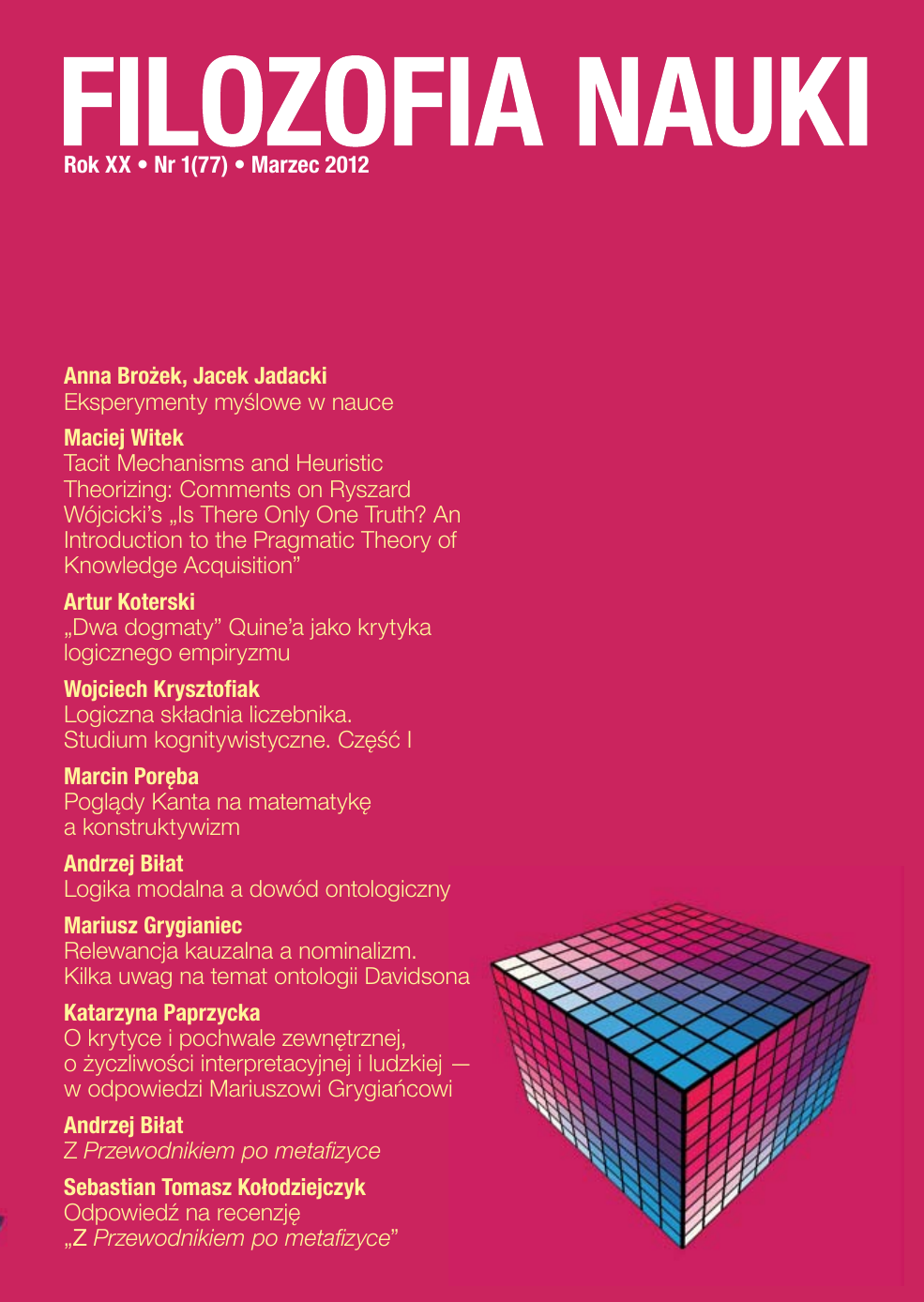Logika modalna a dowód ontologiczny
Słowa kluczowe:
ontological argument, modal logic, Anzelm’s Axiom, Leibniz’s AxiomAbstrakt
The contemporary versions of the ontological argument originated from Charles Hartshorne are formalized proofs (in the metalogical sense of the word) based on unique modal theories. The simplest well-known theory of this kind arises from the system B of modal logic by adding two extra-logical axioms: (AA) “If the perfect being exists, then it necessarily exists” (Anselm’s Axiom) and (AL) “It is possible that the perfect being exists” (Leibniz’s Axiom). In the paper a similar argument is presented, however none of the systems of modal logic is relevant to it. Its only premises are the axiom (AA) and, instead of (AL), the new axiom (AN): “If the perfect being doesn’t exist, it necessarily doesn’t”. The main goal of the work is to prove that (AN) is no more controversial than (AA) and — in consequence — the whole strength of the modal ontological argument lays in the set of its extra-logical premises. In order to do that, three arguments are formulated: ontological, “cosmological” and metalogical.















 Filozofia Nauki | ISSN 1230-6894 | e-ISSN 2657-5868
Filozofia Nauki | ISSN 1230-6894 | e-ISSN 2657-5868